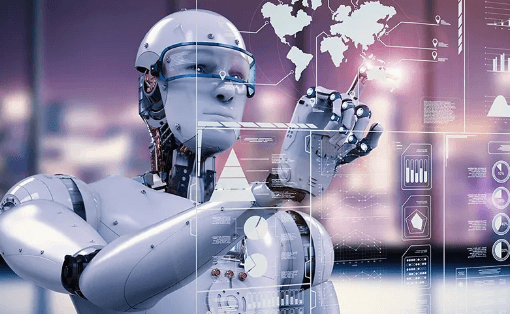Navigating the Rise of AI and Automation in Job Markets

As AI and automation continue to transform industries across the globe, their impact on the job market is becoming more pronounced. While these technologies are making processes faster, more efficient, and sometimes more cost-effective, they are also reshaping the nature of work. Many job seekers and professionals are wondering: What does this mean for my career? Which skills are becoming obsolete, and what should I focus on to stay relevant?
In this article, we’ll explore how AI and automation are affecting the workforce, which skills are increasingly in demand, and how you can prepare yourself for success in an AI-driven world.
The Impact of AI and Automation on Jobs
AI and automation have already started replacing certain tasks that were traditionally performed by humans. Jobs that involve routine, repetitive, and manual tasks are at the highest risk. According to a 2019 report from McKinsey Global Institute, as many as 375 million workers worldwide may need to switch occupational categories and learn new skills by 2030 due to automation. This doesn’t mean there will be fewer jobs overall, but the kinds of jobs available will change significantly.
Industries like manufacturing, logistics, and data processing have seen some of the most significant impacts. For instance, factories now use robots to handle tasks such as assembly line work, reducing the need for human labor in those areas. Similarly, AI-powered software can now process large amounts of data in fields like finance and law, cutting down on the need for junior employees to perform such tasks.
However, it’s not all about job loss. While certain roles may be phased out, new ones are emerging, particularly in technology-driven sectors. As machines take over menial tasks, human workers will be required for more complex, creative, and interpersonal roles that AI cannot replicate easily.
See also: jobe4u.net
Jobs Most at Risk
- Repetitive Manual Labor: Jobs that involve routine physical tasks, such as assembly line workers, packers, and even some service roles like cashiers, are increasingly being automated. Self-checkout systems, for example, are already a familiar sight in supermarkets, and robotic arms in warehouses are becoming more common.
- Basic Data Processing: Administrative roles such as data entry clerks and certain kinds of office assistants are vulnerable. AI algorithms can process, sort, and manage data at much faster speeds than humans, rendering these tasks more efficient and less reliant on human workers.
- Simple Customer Support: With the advent of AI-driven chatbots and automated phone systems, basic customer service roles that involve answering common inquiries or providing routine information may also be at risk.
Jobs of the Future: High Demand in an AI-Driven World
While automation may be a threat to some jobs, it also opens doors for new opportunities. Many of the jobs that will be in demand in the future require a higher level of technical and cognitive skills, as well as a strong emphasis on creativity and human-centered roles. Here are some of the key areas where job opportunities are expected to grow:
- AI and Machine Learning Specialists: As AI systems become more prevalent, there is a growing demand for professionals who can develop, maintain, and improve these technologies. Careers in AI research, data science, and machine learning engineering are booming, with companies seeking talent to drive innovation in these fields.
- Data Analysts and Scientists: The ability to interpret and make sense of the vast amounts of data produced by AI systems will be crucial. Data scientists and analysts are needed to provide insights that businesses can act on, ensuring AI tools are used effectively.
- Cybersecurity Experts: As more systems become digitized and connected, the need for cybersecurity professionals to protect sensitive information is growing. Safeguarding AI-powered systems from hacking and fraud is becoming increasingly critical in a world where cyber threats are escalating.
- Healthcare Professionals: While AI is starting to play a significant role in diagnostics and treatment recommendations, healthcare jobs that require human interaction, such as nurses, therapists, and care providers, remain irreplaceable. The aging global population will only increase the demand for skilled healthcare workers, combining AI tools with human empathy and decision-making.
- Robotics Engineers: Automation in physical spaces, such as warehouses, manufacturing plants, and even households, is advancing rapidly. Robotics engineers are in high demand to design, build, and maintain the hardware that AI software relies on.
- Creative and Strategic Roles: Creativity remains one of the few areas where AI struggles to outperform humans. Fields such as marketing, content creation, and strategic planning require human intuition, storytelling ability, and creative problem-solving skills, all of which are difficult for machines to replicate.
Skills That Machines Can’t Replicate
Although technical skills are increasingly important in an AI-driven world, soft skills will play an equally critical role in the future job market. Here are some soft skills that will remain valuable, even as AI continues to advance:
- Emotional Intelligence: The ability to understand and manage emotions—both your own and others’—is a fundamental skill that AI cannot yet replicate. Emotional intelligence is essential in leadership, teamwork, and customer service roles, where interpersonal relationships and human connection are key.
- Critical Thinking and Problem-Solving: While AI can analyze data and recognize patterns, it lacks the human ability to think critically, adapt to new and unexpected situations, and find creative solutions to complex problems. Professionals who can approach challenges with flexibility and resourcefulness will continue to be highly valued.
- Communication Skills: Clear and effective communication, particularly in roles that require negotiation, persuasion, or collaboration, is another area where humans excel. Jobs that involve leadership, teaching, or client-facing responsibilities will always require strong communication abilities.
- Adaptability and Lifelong Learning: With technology evolving at an unprecedented rate, the ability to adapt and learn new skills continuously is perhaps the most crucial trait for professionals in the AI age. Being open to change and willing to embrace new tools and ways of working will help individuals stay competitive in the job market.
- Collaboration and Teamwork: While AI can optimize certain processes, it can’t replace the creativity and innovation that come from collaboration. Jobs that require people to work together, exchange ideas, and build on each other’s strengths will remain critical.
Preparing for a Career in an AI-Driven World
So, how can you prepare for a future where AI and automation are increasingly present? Here are some practical steps to consider:
- Upskill in Technology: No matter your industry, gaining a basic understanding of AI, automation, and data science will be beneficial. You don’t have to become a machine learning expert, but knowing how these technologies work and how they can impact your field will help you stay ahead.
- Embrace Continuous Learning: Lifelong learning is no longer just a buzzword; it’s a necessity. Enroll in online courses, attend workshops, and stay informed about the latest trends in your industry. Platforms like Coursera, edX, and LinkedIn Learning offer a wealth of resources to help you keep your skills up to date.
- Develop Soft Skills: While technical skills are important, soft skills will continue to be in high demand. Focus on improving your communication, collaboration, and emotional intelligence through practical experience and personal development.
- Be Open to Change: The job market will continue to evolve, and roles that don’t exist today may be essential tomorrow. Being open to new opportunities and willing to pivot your career path as needed will help you thrive in an ever-changing environment.
- Leverage AI to Your Advantage: Instead of fearing AI, consider how you can use it to enhance your own productivity. Learn to work alongside AI tools that can streamline your tasks, allowing you to focus on more complex and creative work.
Conclusion
AI and automation are undoubtedly reshaping the job market, but with change comes opportunity. By focusing on upskilling in technology, developing soft skills that machines can’t replicate, and maintaining a mindset of adaptability and lifelong learning, you can position yourself for success in an AI-driven world. While some jobs may become obsolete, many new and exciting roles are emerging, offering plenty of opportunities for those ready to embrace the future.


